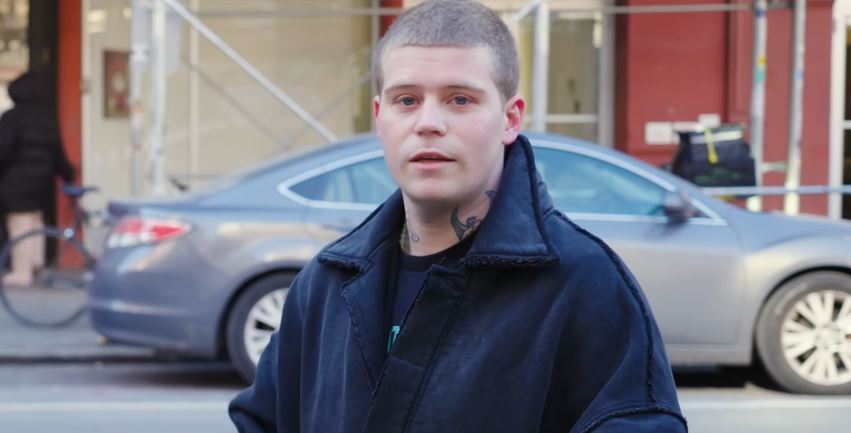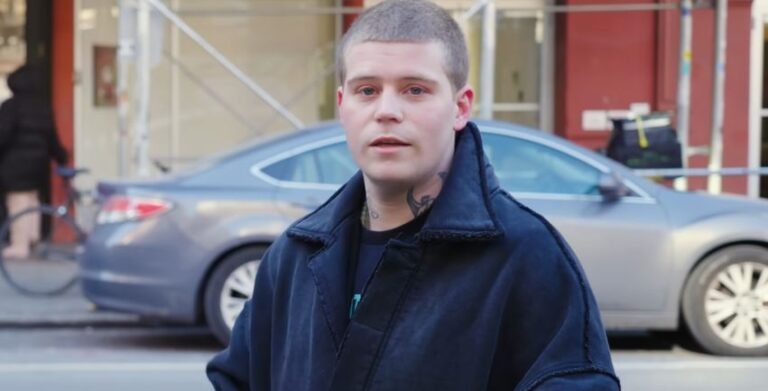The financial journey of Yung Lean is a subdued yet captivating tale of artistic autonomy. His journey demonstrates how niche influence can result in economic resilience, with an estimated net worth of $3 million in 2025. He developed a distinctive style that connected with people all over the world rather than aiming for chart-topping songs, which led to the development of a devoted following and an extraordinarily adaptable body of work. His sources of income are diverse and include digital concerts, merchandise, music royalties, and partnerships in fashion and film.
It’s especially intriguing how, despite changing genres—from cloud rap to indie rock—his brand has stayed remarkably consistent under his alias, Jonatan Leandoer96. He curates atmospheres in addition to making music. His audience has remained devoted to him over the long run thanks to that consistency.
| Yung Lean – Profile and Earnings Overview | |
|---|---|
| Full Name | Jonatan Aron Leandoer Håstad |
| Stage Name | Yung Lean |
| Date of Birth | July 18, 1996 |
| Birthplace | Södermalm, Stockholm, Sweden |
| Genres | Cloud rap, Emo rap, Indie, Neofolk |
| Known For | “Ginseng Strip 2002,” Sad Boys collective |
| Labels | Sad Boys Entertainment, World Affairs, Year0001 (until 2024) |
| 2025 Net Worth | $3 Million |
| Website | Yung Lean – Wikipedia |
Lean has negotiated the music business on his own terms since making his breakthrough at the age of sixteen, when “Ginseng Strip 2002” went viral. Lean leaned into digital, in contrast to many artists whose income is directly linked to label advances or radio plays. He got around traditional gatekeepers by posting his songs to SoundCloud and YouTube with their own visuals, which was a very successful way to reach a worldwide audience without spending a lot of money on advertising.
His revenue has been derived from a variety of sources over the last ten years, including live tours, clothing sales, music streaming, and production partnerships. His Sad Boys brand has been incredibly resilient, generating steady demand through collaborations and limited releases, such as a 2018 Converse capsule. Many independent artists now try to imitate his business model, which combines style and sound without ever becoming oversaturated.

Yung Lean is a symbol of a particular emotional frequency for Gen Z fans. His songs, which frequently deal with youth, nostalgia, and loneliness, are quiet but profound. He was largely responsible for creating a new genre of melancholic, lo-fi rap, which influenced later artists such as Juice WRLD, Lil Peep, and even Billie Eilish. Behind the scenes, that influence has had a big impact, even though it doesn’t always show up on popular charts.
Lean has kept growing his brand in recent years without weakening its values. In 2023, he co-produced the album Psykos with Bladee and made an appearance on Travis Scott’s Utopia. His talents now go beyond just music; he has appeared in Charli XCX remixes and even landed a part in the 2025 movie Sacrifice. These are surprisingly tangible milestones for an artist who started out as an underground internet legend.
He firmly broke with Year0001, the independent label that released his first hits, in 2024 by starting his own label, World Affairs. This was more than just a symbolic move; it gave him complete creative and financial control over his catalog. The change was both liberating and long overdue for a performer who used to record vocals in a basement studio.
His discography demonstrates an exceptionally wide range, featuring notable albums such as Stranger, Starz, and Unknown Memory. He also experimented with indie and neofolk under Jonatan Leandoer96, releasing Nectar and Sugar World, which further demonstrated his versatility as an artist. This dual identity approach has proven to be very effective at attracting new listeners and keeping hold of devoted followers.
Yung Lean’s influence is frequently understated in the context of youth-led music cultures. He endures precisely because he isn’t ostentatious. Fans are able to project their own feelings onto the music thanks to his subtle presence, multi-layered visuals, and erratic sound choices. He asks listeners to sit next to him in the haze rather than telling them how to feel.
Data streaming by itself presents a positive image. Metrics from 2024 show that Lean’s Spotify and YouTube channels together bring in tens of thousands of dollars each month, which is sufficient to support his art without depending on top-charting radio plays. He is a brand just as much as a musician, as evidenced by the fact that he is regularly chosen for fashion campaigns and art partnerships.
His choice to become a filmmaker could be the next step in his career development in the years to come. It’s not out of the question that Yung Lean will become a creative director or screenwriter given his cult following, production credibility, and eye for visual language. Deeper storytelling was made possible by his 2020 documentary In My Head, which provided an emotionally charged and remarkably clear portrayal of his inner world.
Lean has become a role model for endurance despite his early mental health issues, which included a reported breakdown during his 2015 U.S. tour. He has developed a brand that feels both emotionally genuine and commercially viable through deliberate healing and consistent creative output. The risk of burnout that many young artists face has been greatly decreased by that unique balance.
The $3 million net worth figure represents a philosophy rather than merely a numerical value. It demonstrates how an artist can maintain their integrity, grow their fan base, and still make a living. Lean’s slow burn has proven especially inventive in a field that frequently pushes musicians toward quick monetization.



